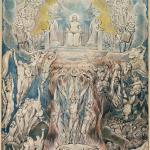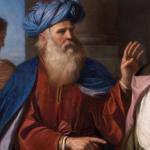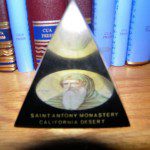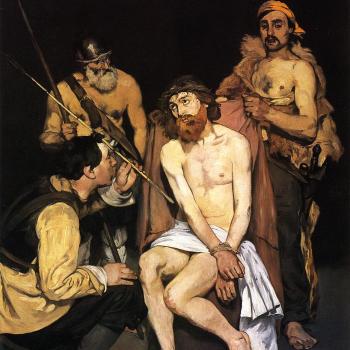
There have been a few events the last few days which I have thought about commenting upon with the most prominent of them being President Biden’s Executive Order concerning immigration. I think it was a mistake on his part. Those seeking, indeed, needing asylum, have the potential to being gravely harmed by it. Of course, I know that if Donald Trump, and those who follow him, had their way, things would be far worse, as they have nothing but contempt for migrants. Nonetheless, I can’t but think that Biden’s response is one which will appeal to very few people. Immigration reform is necessary, but such reform must be based upon compassion for immigrants, especially those seeking asylum, so that their human dignity can be and will always be considered instead of compromised by the rule of law and the structures put into place to process migrants as they seek to enter and reside in the United States. Sadly, we are, as a country, becoming more and more inhumane in our treatment of the other, with those who consider themselves to be Christians competing with each other as to who will be the cruelest to foreigners. While I could, and do want to talk more about these issues, it will have to be later; this week, what caught my eye is the feast of St. Anthony of Padua.
Over the years, I have developed an interesting relationship with St. Anthony of Padua, one which has led me to consider him to be my “secondary” patron saint – or, perhaps, it is better to say that he found me and made sure I treated him as such.
How did this happen?
When I was chrismated, I chose St. Antony (Anthony) of Egypt to be my patron saint, which is why I often comment about him and his sayings, trying to find a way they can apply to non-ascetics living in the 21st century (which is not always an easy task). Family and friends knew I chose a St. Antony to be my patron saint, but many of them, especially family members, did not know who he is, but, trying to honor my choice, bought me various trinkets connected to St. Anthony of Padua, thinking he was my patron saint. As this happened quite often, I decided to read up on the life and thought of St. Anthony of Padua; in doing so, I grew to see how he often reflected many of my same spiritual inclinations, showing that there was a legitimate connection between the two of us. He studied and knew theology, but he did not limit himself to academic theology. Rather, he engaged people, not just through theological speculation, but based upon the spiritual and physical needs he saw that had. Not only did he warn the rich and powerful who used their wealth and power to lord it over others, telling them they need to repent and look after and help those in need, that was a significant part of the message which he preached. This is why many of them saw him to be a nuisance and even one wealthy businessman tried to have him poisoned, but when he saw Anthony miraculously survived, he had a change of heart and turned his life around. Similarly, like St. Francis of Assisi, he was able to form special bonds with animals, communicating with them in such a way that they shared in Anthony’s glorification of God. All of these facts attracted me to him, but when I learned that he took on the name of Anthony in order to honor St. Antony of Egypt, that confirmed the connection I had with him and I then saw him to be one of my spiritual guides, becoming my “secondary” patron saint. That is why, when I visited Italy so many years ago, I made sure I visited Padua.
It saddens me that many people know of St. Anthony of Padua only because they know him as the saint people turn to when looking for lost items. They might know a few events from his life, such as when he preached to fish, but most seem to have little to no interest in the man who they turn to often throughout their lives. Anthony was concerned for the needs of the poor, for those who found themselves being oppressed by society. He was also concerned with the way heretical sects recruited the disenfranchised, and so he did what he could to educate the people, helping them understand the problems which came from those sects, while making sure the church took into consideration what aspects of them appealed to the populace, so that the needs of the people could truly be met. He was known to have been an eloquent preacher, but what we have in relation to his preaching is his “sermon collection,” is more like notes and explanations for difficult texts so that preachers who were not as educated as he would have what they needed to preach to their congregation than they are actual sermons. I made sure I bought that collection so that I could read through it and apply Anthony’s wisdom to my own life and theological reflections. In doing so, it became clear, he wanted to address the wide range of theological speculations and topics, but he also wanted to make sure they did not become disconnected to the needs of the people, something which I have tried to do, and continue to try to do, with my own work.
We need the likes of St. Anthony of Padua today, someone who can take and use the whole of the Christian tradition, showing how we can be faithful to it while engaging the concerns of the modern age. Things do not seem to change. We need people today who will be concerned about human dignity and how to defend and protect it from those who undermine it, especially when those who undermine it have wealth and power. Today, many people find their dignity and value questioned, among which, of course, are the poor in society, but also those who have become migrants and refugees. St. Anthony, I believe, would be among the first speaking out on their behalf, criticizing so-called Christians, especially Christian politicians, who treat migrants with contempt. Many of those who ask St. Anthony to find them their lost items should first ask St. Anthony to help them find their lost compassion. I certainly hope, throughout my life, he will help direct and guide me, to make sure I continue to address the needs of the people, promote the dignity of the oppressed, and do so in such a way that my theological explorations can and do help in that process.
Stay in touch! Like A Little Bit of Nothing on Facebook.
If you liked what you read, please consider sharing it with your friends and family!
N.B.: While I read comments to moderate them, I rarely respond to them. If I don’t respond to your comment directly, don’t assume I am unthankful for it. I appreciate it. But I want readers to feel free to ask questions, and hopefully, dialogue with each other. I have shared what I wanted to say, though some responses will get a brief reply by me, or, if I find it interesting and something I can engage fully, as the foundation for another post. I have had many posts inspired or improved upon thanks to my readers.













